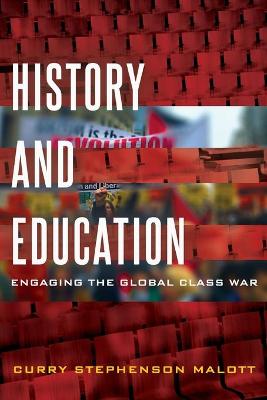Education and Struggle
2 primary works
Book 5
With the contradictions of capitalism heightening and intensifying, and with new social movements spreading across the globe, revolutionary transformation is once again on the agenda. For radicals, the most pressing question is: How can we transform ourselves and our world into something else, something just? In Marx, Capital, and Education, Curry Stephenson Malott and Derek R. Ford develop a "critical pedagogy of becoming" that is concerned with precisely this question. The authors boldly investigate the movement toward communism and the essential role that critical pedagogy can play in this transition. Performing a novel and educational reading of Karl Marx and radical theorists and activists, Malott and Ford present a critical understanding of the past and present, of the underlying logics and (often opaque) forces that determine the world-historical moment. Yet Malott and Ford are equally concerned with examining the specific ways in which we can teach, learn, study, and struggle ourselves beyond capitalism; how we can ultimately overthrow the existing order and institute a new mode of production and set of social relations. This incisive and timely book, penned by two militant teachers, organizers, and academics, reconfigures pedagogy and politics. Educators and organizers alike will find that it provides new ammunition in the struggle for the world that we deserve.
Book 9
History and Education is a text that engages the history of the global class war, from the United States to the former Soviet Union, from the People's Republic of China to the Democratic People's Republic of Korea, in order to contribute to the development of communist pedagogy. Central to this communist pedagogy is the struggle for Native American sovereignty and for the self-determination of oppressed nations within the U.S. Pedagogical theory is mobilized to highlight the centrality of seizing state power in the movement for transforming capitalist production relations and bourgeois society into socialist relations and a communist form of society premised on the self-determination of racial, ethnic, and linguistic minorities. In the process History and Education challenges both the white chauvinism of pure proletarian communists as well as the anti-communism that, for decades, has dominated the Left in general, and the educational Left in particular, especially in the U.S. The book contributes to the current resurgence in the popularity and appeal of socialism as an achievable and necessary internationalist, solidarity-based alternative to capitalism.

